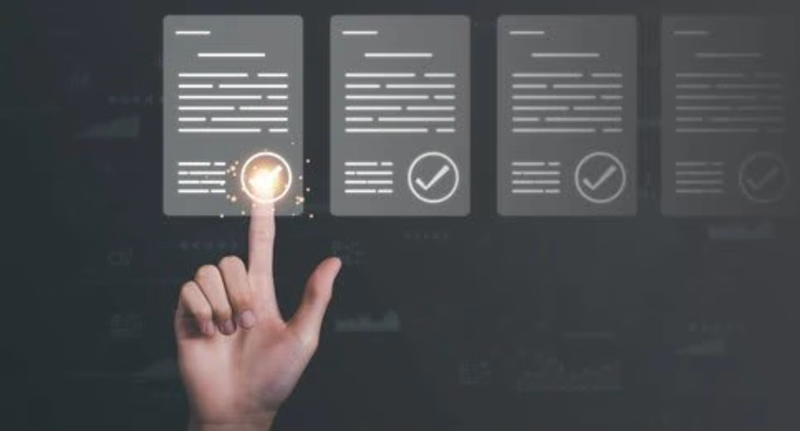Ready to buy your first home? Discover essential budgeting tips, mortgage guidance, and real-life advice to prepare your finances and achieve your dream of homeownership. Start your journey today!

Are you dreaming of buying your first home but feeling overwhelmed by all the financial details?
Don’t worry you’re not alone. As a real estate company that has helped countless people achieve their dream of homeownership, we understand the challenges you’re facing. That’s why we’ve put together this comprehensive guide to help you prepare your finances and navigate the home-buying process with confidence.
Table of Contents
1. Check Out Your Financial Situation
- Look at Your Income and Expenses
- Know Your Debts
2. Budgeting for a Home
- Find Your Price Range
- Make a Home-Buying Budget
3. Understanding Mortgage Options
- Fixed-Rate vs. Adjustable-Rate Mortgages
- Government-Backed Loans
4. Saving for a Down Payment
- Smart Saving Tips
5. Prepare for Extra Costs
- Expect These Ongoing Expenses
6. Boost Your Credit Score
- Easy Ways to Improve Your Credit
7. Get Pre-Approved for a Mortgage
- Why Pre-Approval Rocks
8. Work with Real Estate Pros
- Pick the Right People
9. Conclusion
Check Out Your Financial Situation
Before you start house hunting, it’s crucial to understand your financial standing. This will set the foundation for a successful home-buying journey.

Look at Your Income and Expenses
- Track Your Monthly Income: Include all sources of income, like salary, bonuses, and side gigs.
- List Your Expenses: Break them down into needs (rent, groceries) and wants (movies, dining out).
- Calculate Your Net Savings: Subtract your expenses from your income to see how much you’re saving each month.
Know Your Debts
- Identify All Debts: List out credit cards, student loans, car loans, etc.
- Calculate Your Debt-to-Income Ratio (DTI): Add up your monthly debt payments and divide by your gross (before-tax) income. Aim for a DTI below 36%.
Budgeting for a Home
Creating a detailed budget is key to understanding what you can afford and preparing for the financial responsibilities of homeownership.
Find Your Price Range
- Use Online Calculators: These tools help estimate how much you can spend on a house.
- Follow the 28/36 Rule: Spend no more than 28% of your gross income on housing and 36% on total debts.
Make a Home-Buying Budget
- Down Payment: Typically around 20% of the home’s purchase price.
- Closing Costs: Generally 2–5% of the loan amount.
- Moving Expenses: Don’t forget to budget for packing, hiring movers, and transportation.
- Emergency Fund: Set aside 3–6 months’ worth of living expenses just in case.

Understanding Mortgage Options
Mortgages can be confusing, but we’re here to make it simple.
Fixed-Rate vs. Adjustable-Rate Mortgages
- Fixed-Rate Mortgage: Your interest rate and monthly payments stay the same for the life of the loan.
- Adjustable-Rate Mortgage (ARM): Starts with a lower rate that can change over time based on market conditions.
Government-Backed Loans
- FHA Loans: Ideal for first-time buyers with lower down payment requirements.
- VA Loans: For veterans, often with no down payment.
- USDA Loans: For rural homes, offering low rates and no down payment.
Saving for a Down Payment
A substantial down payment can lower your loan amount and monthly payments, making homeownership more affordable.

Smart Saving Tips
- Set a Goal: Decide how much you need and when you want to buy your home.
- Open a High-Yield Savings Account: Earn more interest on your savings.
- Automate Savings: Set up automatic transfers from your checking to your savings account.
- Cut Back on Extras: Reduce spending on non-essentials to save more.
Prepare for Extra Costs
Owning a home comes with costs beyond the purchase price. Be prepared for these ongoing expenses.
Expect These Ongoing Expenses
- Property Taxes: Based on your home’s value.
- Homeowners Insurance: Protects your home and belongings.
- Maintenance and Repairs: Save 1–3% of your home’s value each year.
- Utilities: Water, electricity, gas, and internet bills.

Boost Your Credit Score
A good credit score can help you secure better mortgage rates. Here’s how to improve yours.
Easy Ways to Improve Your Credit
- Pay Bills on Time: Late payments hurt your score.
- Lower Credit Card Balances: Keep them below 30% of your limit.
- Limit New Credit Inquiries: Each inquiry can ding your score a bit.
- Check Your Credit Report: Fix any mistakes that might be affecting your score.
Get Pre-Approved for a Mortgage
Getting pre-approved shows sellers you’re serious and helps you understand your budget.
Why Pre-Approval Rocks
- Know Your Limit: Helps you focus your home search.
- Stronger Offers: Sellers prefer pre-approved buyers.
- Faster Closing: Less paperwork and quicker processing.
Work with Real Estate Pros
A good real estate agent and mortgage broker can make a big difference.

Pick the Right People
- Real Estate Agent: Look for someone experienced, knowledgeable about your area, and easy to talk to.
- Mortgage Broker: They can find the best rates and terms for you.
Conclusion
Buying your first home is a big step, but with the right preparation and support, you can do it! Check your finances, set a budget, understand your mortgage options, save up, and work with trusted professionals. You’ve got this!
Ready to start your home-buying journey? Begin by evaluating your financial situation and setting a savings goal.
Need help? Give us a call or drop by our office.
We’re here to guide you every step of the way. Let’s find your dream home together!
Contact Us:
Phone: 9037042832
Email: webpix3@gmail.com
Website: www.dreamhome.com
Follow Us:
Facebook | Twitter | Instagram | LinkedIn



